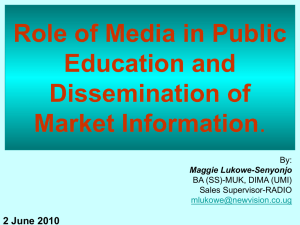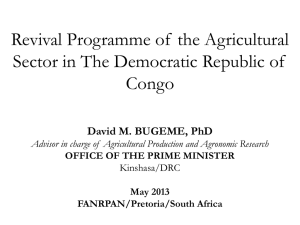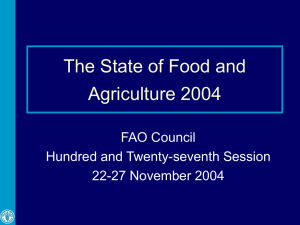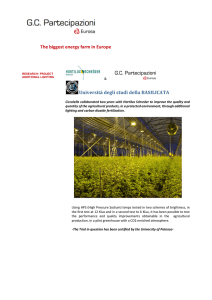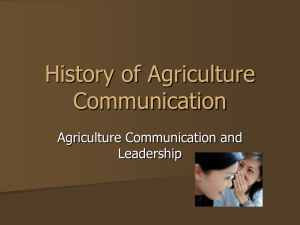Food Security in The ECO Region
advertisement
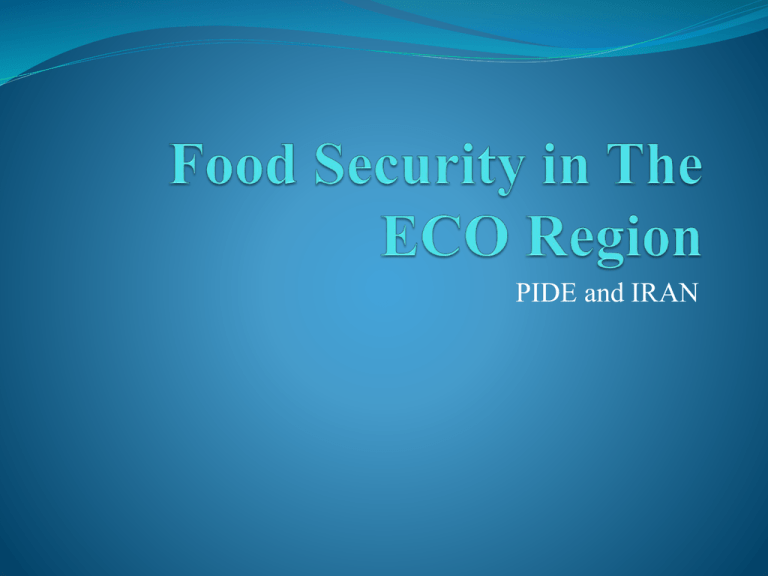
PIDE and IRAN Project Description and Background Ensuring food security has become a serious challenge for the developing countries According to FAO 2010 report, 98% of world undernourished people live in developing countries 30 percent of Tajikistan population is undernourished compared with an average of 13% in other developing countries Cont’d… Afghanistan and Tajikistan are considered to be in a protracted crisis. Kyrgyzstan also faces the food insecurity problem especially people living in mountainous areas, which have less accessibility and limited agricultural potential Given this background, it is important to analyze the food security situation in the region, identify the factors that impinge on the food security situation, and draw implications for regional trade and economic cooperation for ensuring food security and reducing hunger and malnutrition in the region. Beneficiaries Direct Beneficiaries: Government ministries/Agencies, Planning Commissions of the member countries Directly or Indirectly Affected Parties: Private businesses involved in food trade Parties to Cooperate and Coordinate Project Activities: Planning Commissions/Economic and Finance Ministries of the member countries Relevance of The Project Relevance to ECO Objectives and Priorities: The project is relevant to ECO objectives of effective utilization of agricultural and industrial potential of the member countries, liberalizing and improving the intraregional trade, thereby contributing to the growth of world trade. Relevance to National Objectives and Priorities The project is aimed at analyzing food security situation of the member countries and suggesting policy recommendations to make effective utilization of member countries agricultural resources Overall and Specific Project Purpose Assess the food security situation in the ECO region Identify various factors influencing food security in the region Examine policy related to pricing, procurement, and trade of major foodstuffs in member states Cont’d… Develop long-term forecasts of food prices and their implications for regional food security in a longer term perspective taking into account such parameters as price elasticity, patterns of intra-regional trade in food products, and exchange rate fluctuations; food security in ECO region, and suggest strategies and programmes for regional collaboration for mitigating food insecurity Project Outputs The project offers a comprehensive analysis of the food security situation of the region Comprehension of the factors that affect food security situation of the region, and Policy implications to use region’s agricultural resources in an optimal way Duration of The Project Investment Period: 12 months from the date of initiation Expected Operating Period: 12 months from the date of initiation Basic Activities Data Collection; Econometric Modeling; interpretation and analysis; Drawing policy implications Progress of the study Preliminary data have been collected on macroeconomic aggregates, agricultural production and consumption, and trade. A model is being developed to assess the food security situation and estimate the linkages between trade liberalization and food security. Draft report to be ready in 6 months.

